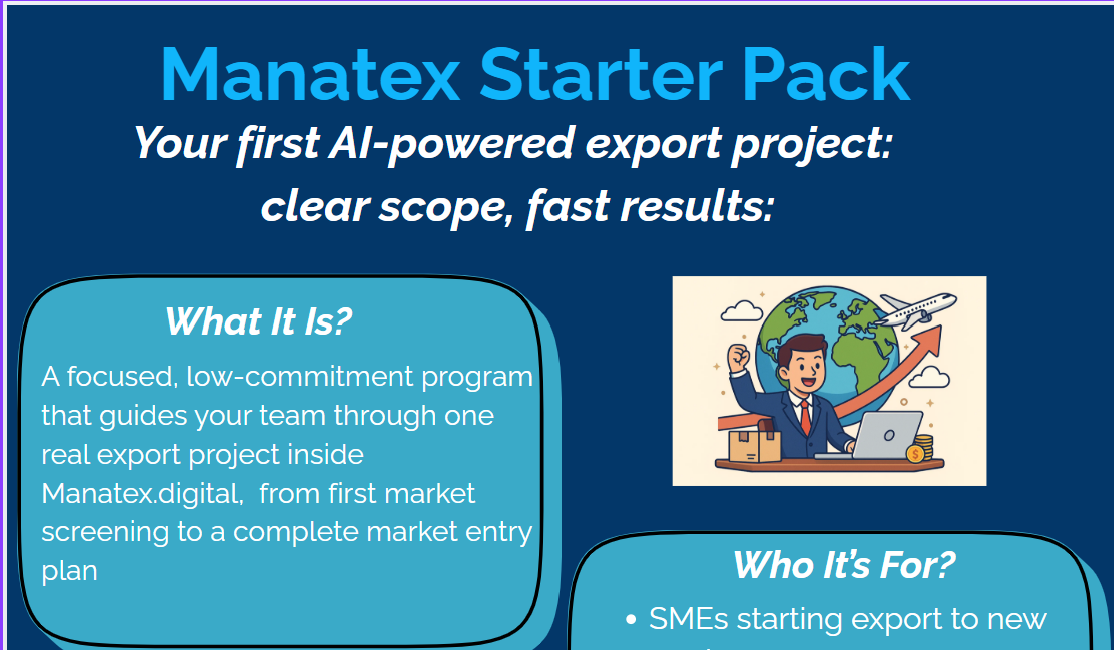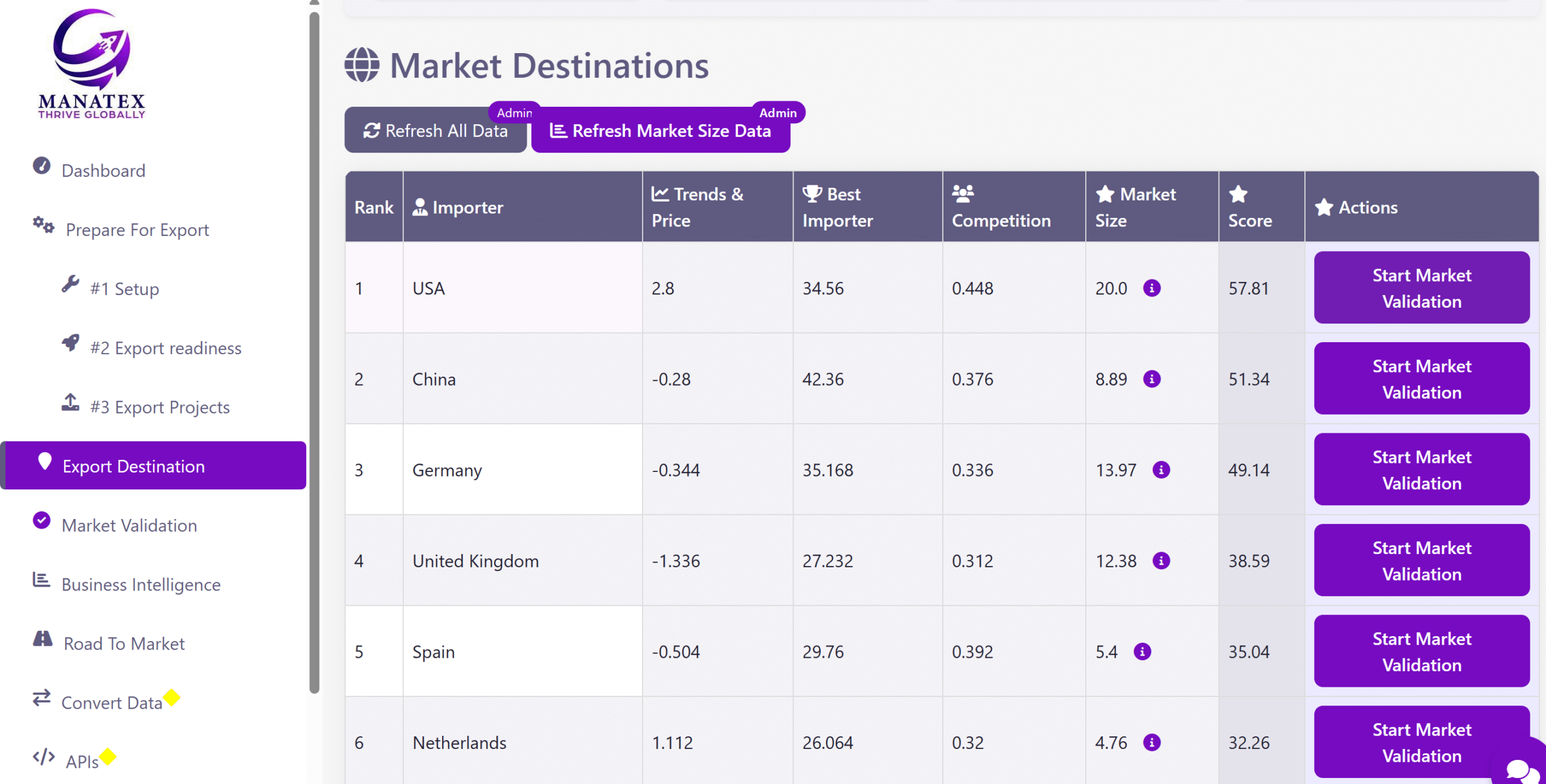Struggling to find the right B2B distributor for your product? You’re not alone. Many exporters waste time and resources chasing leads that go nowhere. The problem isn’t just bad luck. It’s the outdated search methods still used by most SMEs. The good news? AI is transforming how companies identify, evaluate, and connect with the right distributors; with more speed, accuracy, and lower risk than ever before.
Small and Medium-sized Enterprises (SMEs) are known to be drivers of economic growth in practically any country. For example, according to OECD, in OECD nations, SMEs account for around 99.7% of firms, 60% of employment, and roughly 50–60% of value added. Yet only a fraction of them export internationally (especially beyond neighboring countries). One of the critical obstacles lies in finding reliable, effective distributors in unfamiliar markets, a process SMEs often manage with outdated methods because of lack of resources (e.g. good consultants are too expensive).
In the new era of AI even small companies can dream big but the paradigm shift from outdated methods to modern ones takes a lot of time.
Why Traditional Distributor Search Methods Often Fail
- Trade fairs and in‑person networking are slow and costly
- Trade exhibitions once served as the default for finding distributors—but nowadays they demand significant travel budgets, time, and uncertain ROI. Many SMEs lack funds or time (of limited export staff) for multiple fairs. Big events are expensive and still attract a lot of participants but the number of attendees hardly exceeds 30-50/one stand. And people who attend these fairs are not always buyers but also: students, journalists, consultants etc.
- The exception can be an event where costs are covered by the government of the participant’s company. But still, the lack of strategy is obvious here. Companies often target wrong markets and struggle to build relationships and meet expectations afterwards.
- Static directories lack performance data
- SMEs often rely on chamber directories or B2B listings, which frequently suffer from outdated entries, missing updates, or lack of insight into distributor reliability or performance.
- Manual outreach is inefficient
- Contacting dozens of distributors via cold emails generates poor response rates. Selection often relies on intuition rather than measurable metrics such as financial stability, past transaction volumes, or digital presence.
- Rapid market changes outpace manual efforts
- Export markets evolve quickly—due to shifting demand, regulatory changes, or geopolitical developments. Traditional methods cannot adapt fast enough to identify emerging opportunities or flag sudden risks.
- Missing compliance and fraud checks
- Manual processes rarely incorporate filters for sanctions, credit risk, trade history or overlaps with competitors. This gap exposes SMEs to significant legal, financial, and reputational risks.
- These limitations reflect broader issues SMEs face in internationalisation—especially informational inefficiencies and procedural barriers
Hidden Costs & Risks for SMEs
SMEs are disproportionately impacted by trade-related issues. According to the WTO, SMEs face higher costs for logistics, trade finance, and customs compared with large firms. Incorrect distributor selection can compound these costs via misaligned partners, delayed shipments, or lost revenues.
In other words, a lot of valuable resources are wasted because the process of market selection usually doesn’t exist and distributors are identified and targeted wrongly. This all affects ROI of the export process.
How AI and Predictive Matching Overcome These Limits
- Real‑time data aggregation
- AI platforms collect and update information across millions of data points—such as financial records, online reviews, transaction history, regulatory status, and digital visibility—ensuring distributor profiles are current.
- Predictive scoring algorithms:
- Machine learning models analyse historical patterns to predict distributor success probability, cultural fit, and potential for market penetration. These scoring systems replace subjective judgment with evidence-based ranking. Academic studies show ML can accurately predict exporter success from firm-level data.
- Compliance and risk filtering
- AI tools are capable screen distributors against sanction lists, fraud databases, and credit indicators automatically—greatly reducing legal exposure and vetting time.
- Automated outreach and communication tools
- Once a shortlist is created, AI systems can pre‑populate proposals, schedule contacts at optimal times, and deliver real‑time translation or messaging—reducing manual labor and accelerating connection.
Conclusion
While face-to-face contact with potential clients remains important, companies should keep in mind ROI and other metrics because the waste of limited resources affects the performance of the companies and morale of the personnel. Smart exporting (e.g. distributor search) has a lot of benefits: speed, accuracy, risks mitigation, cost-efficiency etc. because modern AI-driven platforms offer real-time data, predictive ranking, risk filtering, and automation that dramatically improve outcomes.




